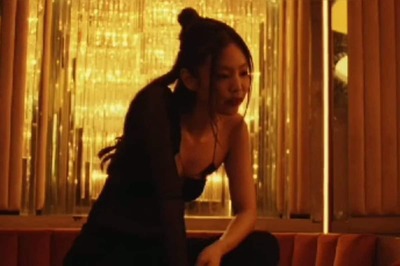
views
New Delhi: In a career spanning more than 70 years, noted jurist Ram Jethmalani took on numerous cases that grabbed intense public and media attention. From representing stockbroker Harshad Mehta to being LK Advani's defence in the Hawala scam to fighting for Arvind Kejriwal in a defamation case filed by Arun Jaitley, Jethmalani represented several high-profile clients.
The case that first swung the spotlight on him was the infamous KM Nanavati case of 1959. India became obsessed with the saga from the moment decorated Naval commander Kawas Maneckshaw Nanavati entered the bedroom of his British wife Sylvia’s lover, Prem Ahuja, and shot him dead, and surrendered at a police station in Bombay.
Nanavati was charged under Section 302 and jury trial, the last in India, commenced. According to a BBC report, “swooning women threw lipstick-kissed currency notes” at Nanavati as he arrived for trial each day in full uniform.
The defence presented Nanavati as an upright and honest officer who was dedicated to the service of his country away from his “lonely and vulnerable wife”. Ahuja was portrayed as an immoral philanderer who “seduced” Sylvia.
While the saga of love and honour played out in court, outside the Parsi and Sindhi communities, to which Nanavati and Ahuja belonged respectively, gave their own spins to the narrative. The public seemed tilted in favour of the honest officer who tried to protect his wife’s honour — the defence had claimed that Nanavati had gone to Ahuja’s residence to ask if he would marry Sylvia if the couple divorced.
Ram Jethmalani wasn’t representing either of the sides personally, but was part of the legal team put together by Ahuja’s sister Maimie. As a young lawyer, Jethmalani was on “watching brief”, but association with the case helped him establish himself in Bombay after moving from Karachi following Partition.
In a surprising verdict, the jury declared Nanavati not guilty on September 23, 1959, but the verdict was declared "perverse" by the judge. The case was then referred to the Bombay High Court.
On March 11, 1960, the HC found Nanavati guilty of killing Ahuja and sentenced him to life in prison. Within hours, the Governor of Bombay issued an unprecedented order and suspended the life sentence until the Supreme Court disposed of the defence’s appeal. In September that year, the apex court said the Governor had “overreached” his powers and struck down his order to suspend the sentence. Three days later, Nanavati was sent to prison. He was granted parole on health grounds in 1963 and moved into a hill resort.
In 1964, new Bombay Governor and Jawaharlal Nehru’s sister Vijayalakshmi Pandit pardoned Nanavati. Having reconciled, Nanavati and Sylvia emigrated to Canada with their three children in 1968, to live out the rest of their lives away from the bloody shadow of the infamous case. Nanavati died in July 2003.
The sensational case has inspired several books and movies, the most recent being Akshay Kumar-starrer Rustom.




















Comments
0 comment